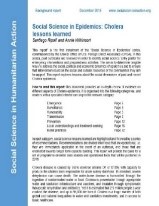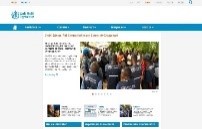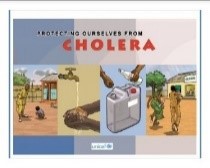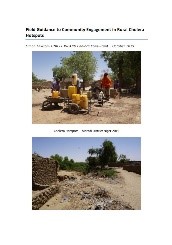Communication for Development (C4D)
Technical Books and Guidelines
 Social Science in Humanitarian Action Social Science in Epidemics: Cholera Lessons Learned (Background Report)
Social Science in Humanitarian Action Social Science in Epidemics: Cholera Lessons Learned (Background Report)
The aim is to determine tangible ways to address the social, political and economic dynamics of epidemics and to ensure that interventions build on the social and cultural resources of the communities they aim to support. This report explores lessons about the social dimensions of past and recent Cholera epidemics.
 UNICEF Behaviour Change Communication in Emergencies: A Toolkit
UNICEF Behaviour Change Communication in Emergencies: A Toolkit
It aims to share relevant and action-oriented information and to motivate programme specialists to work with communication specialists in preparing strategic communication for disasters.
 WHO Communicating Risk in Public Health Emergencies: A WHO Guideline for Emergency Risk Communication (ERC) policy and practice
WHO Communicating Risk in Public Health Emergencies: A WHO Guideline for Emergency Risk Communication (ERC) policy and practice
The recommendations in these guidelines provide overarching, evidence-based guidance on how risk communication should be practised in an emergency. The recommendations also guide countries on building capacity for communicating risk during health emergencies.
 WHO Social Science, Risk Communication and Community Engagement
WHO Social Science, Risk Communication and Community Engagement
This is a website for social science, risk communication and community engagement provided by WHO.
![]() UNICEF The Behavioural Drivers Model
UNICEF The Behavioural Drivers Model
It offers a common reference and language for the study and practice of social and behaviour change (SBC), and can be used as a basis to conduct participatory situational assessments, design and operationalize strategies and programmes, monitor the extent to which interventions are being implemented, and evaluate effectiveness and changes in behavioural and social outcomes.
Global Task Force on Cholera Control (GTFCC) has identified Community Engagement (CE) as a cross-cutting pillar of Multi-Sectorial National Cholera Control Plans (NCP). In 2019, Regional platform in West and Central Africa has launched a study to draw on lessons learnt from community Engagement based approaches to disease control and develop guidance and practical tools for organization working in environmental health, WASH, Communication for development. The result of such work is the establishment of three field guidance for Community Engagement against cholera in: Rural area, Urban context and School.
 C4D Approach to Improve Sanitation, Hygiene, and Water Supply Safety in Bangladesh
C4D Approach to Improve Sanitation, Hygiene, and Water Supply Safety in Bangladesh
The Sanitation, Hygiene Education and Water Supply project in Bangladesh (SHEWA-B) focused on promoting good hygiene and sanitation behaviors through Community Hygiene Promoters (CHPs) who conducted courtyard meetings, tea stall sessions, and household visits using presentations, dramas, folk songs and video shows to communicate hygiene messages. (File is only available as PDF in below)
Materials
 UNICEF Protecting Ourselves from Cholera
UNICEF Protecting Ourselves from Cholera
Universal Flipbook for Cholera Prevention (File is only available as PDF in below)
This flipchart is a visual support for community workers, health workers, emergency workers, and in general all staff conducting face-to-face communication in response to a cholera outbreak.
![]() CORE Group Cholera Module Flipcharts
CORE Group Cholera Module Flipcharts
CORE Group has developed a module to improve preparedness for and response of communities in countries at risk of a cholera epidemic. The module consists of four lesson plans with accompanying flipcharts, intended to be delivered through community health workers.
 CORE Group Cholera Module Lesson Plans
CORE Group Cholera Module Lesson Plans
CORE Group has also developed Cholera Module Lesson Plans.

 Field Guidance
Field Guidance